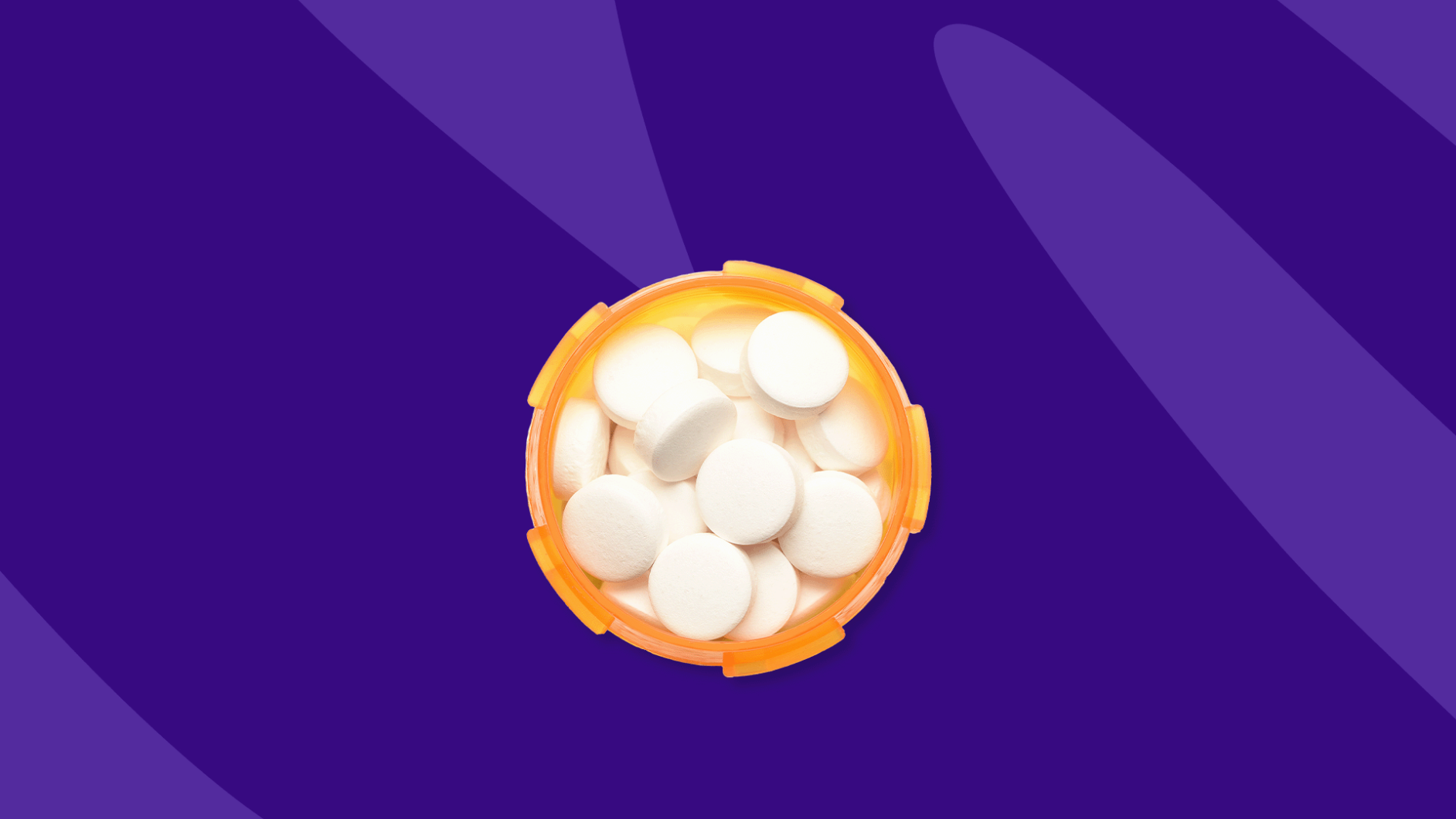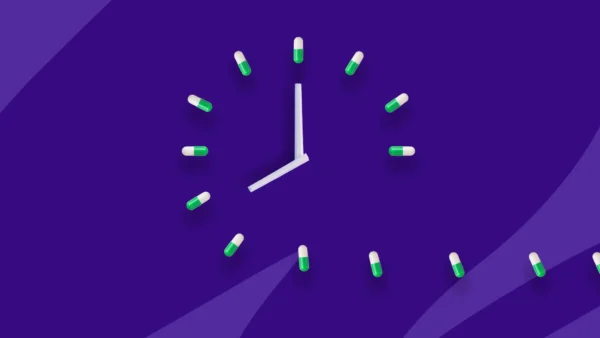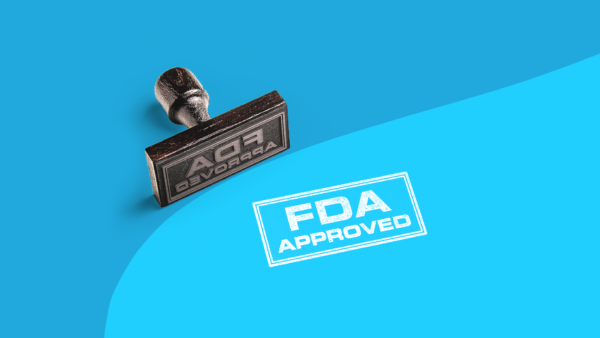Common oxybutynin side effects | Serious side effects | Nausea | Hallucinations | Memory loss | Side effects timeline | Contraindications | Warnings | Interactions | How to avoid side effects | How to treat side effects
Oxybutynin is both a prescription and over-the-counter drug used to treat overactive bladder. Besides its generic version, oxybutynin chloride, people can also take the brand-name prescription drug, Ditropan XL, or purchase a nonprescription brand, Oxytrol for Women. Prescription oxybutynin is taken orally as tablets or as a solution.
Oxytrol, on the other hand, is a transdermal patch that delivers a steady but smaller dose over 30 days. As an antispasmodic drug, oxybutynin relaxes the smooth muscles in the bladder to help relieve bladder control problems, such as urinary incontinence, urinary urgency, and frequent urination. Oxybutynin is also an antimuscarinic drug. It relaxes smooth muscles by blocking acetylcholine, which nerves use to signal muscle contractions. Many of its side effects are related to this mechanism of action, so there’s a good chance of experiencing them. Fortunately, these adverse effects tend to be mild.
Common side effects of oxybutynin
The most common side effects of oxybutynin are dry mouth and dizziness. As many as 3 in 4 people could experience dry mouth when taking oxybutynin. In order of likelihood, the most common side effects of oxybutynin are:
- Dry mouth
- Dizziness
- Constipation
- Drowsiness
- Nausea
- Blurred vision
- Skin redness
- Diarrhea
- Headache
- Skin irritation
- Urinary retention
- Acid indigestion
- Insomnia
- Urinary tract infection
- Vomiting
- Stomach or flank pain
- Difficulty swallowing
- Confusion
- Burping
- Gas
- Hives
- Itching
- Dry skin
- Cough
- Hoarseness
- Dry nasal passages
- Sore throat
- Stuffy nose
- Flushing
- Fatigue
- Changes in how things taste
- Back pain
- Joint pain
- Itchy eyes
- Dry eyes
The Oxytrol for Women transdermal patch will likely cause itching or a rash on the skin where the patch is applied. Skin reactions to the patch may occur in as many as 1 in 3 people, making them some of the most common side effects of the transdermal patch. Other than that, people are less likely to experience oxybutynin side effects when using the patch.
Serious side effects of oxybutynin
The most serious side effects of oxybutynin include the following:
- Eye swelling (keratoconjunctivitis)
- Seizures
- Ocular hypertension or glaucoma
- Changes in the heart’s rhythm
- High blood pressure
- Psychiatric disorders
- Severe allergic reactions
Nausea
Nausea is a common reaction to oxybutynin, but it depends on the format. In clinical trials, approximately 15% of people taking immediate-release oxybutynin complained of nausea. That number dropped to 4.5% of people who took the extended-release version. Nausea is unpleasant, but it is not a health threat. Contact a healthcare professional for medical advice if it’s accompanied by repeated vomiting.
Hallucinations
People have reported several psychiatric and cognitive side effects on prescription oxybutynin. The incidence is unknown, but most involve elderly patients. Oxybutynin works by blocking the neurotransmitter acetylcholine. This can raise the levels of another neurotransmitter, dopamine, and precipitate psychotic symptoms. Side effects like hallucinations, psychosis, and confusion are serious. Medical attention is needed if they occur, and oxybutynin should be stopped.
Memory loss
Memory impairment is another central nervous system problem reported in people taking oxybutynin. The risk is highest in older people or those with certain medical conditions, such as multiple sclerosis, dementia, stroke, or Parkinson’s disease. The exact incidence has not been determined, but oxybutynin carries the highest risk of causing cognitive problems compared to other overactive bladder drugs. Unlike other overactive bladder drugs, oxybutynin easily gets through the blood-brain barrier, accumulates in the brain, and indiscriminately blocks acetylcholine receptors responsible for memory. If memory problems, confusion, or other cognitive issues are a problem, similar antimuscarinic drugs are less likely to cause these side effects. Talk to the prescriber about other treatment options.
How soon do oxybutynin side effects start?
Many of oxybutynin’s side effects occur early in treatment, some as soon as the first dose. Immediate-release oxybutynin tablets hit their peak effects in about two to three hours, but an extended-release tablet takes closer to 12 hours. That’s about the time it takes for common side effects to occur, such as dry mouth, dizziness, nausea, sleepiness, and headache. Some more serious side effects, such as cognitive impairment or hallucinations, could also occur early in treatment. Other side effects, such as constipation and seizures, typically occur after some length of treatment.
How long do oxybutynin side effects last?
Most oxybutynin side effects will fade after the drug is stopped. It takes about 8 hours for the body to completely clear an immediate-release dose from the body, but about two days for an extended-release tablet to be eliminated. By that point, side effects like nausea, dry mouth, drowsiness, dizziness, and other mild or moderate side effects should get better.
What are the long-term side effects of oxybutynin?
Oxybutynin treatment has no time limit, so its long-term use is generally considered safe. In a study of long-term oxybutynin use, about 26% of participants experienced one or more side effects, and those side effects were primarily dry mouth and constipation. There were no unique long-term side effects. In terms of typical side effects, most oxybutynin side effects will fade quickly or last only a few days after the last dose. A few side effects, such as allergic reactions or cognitive impairment, may take a few days or weeks to improve.
Oxybutynin contraindications
Oxybutynin is unsafe for people who are allergic to the drug, have urinary retention problems, severe gastrointestinal retention problems, or have uncontrolled narrow-angle glaucoma. Oxybutynin should not be prescribed to people with any of these medical conditions, and they should not take Oxytrol for Women.
Pregnancy
No studies evaluate the safety of oxybutynin when taken by pregnant women. In general, healthcare providers will balance the risk and benefits when considering oxybutynin for use during pregnancy.
Breastfeeding
No studies have determined whether oxybutynin is present in breast milk or if it affects a nursing infant.
Seniors
In clinical trials, seniors experienced side effects at the same rate as younger adults. However, seniors with dementia or at risk of dementia have an increased risk of some side effects, such as cognitive impairment, psychosis, or similar problems.
Children
The Food and Drug Administration (FDA) has approved oxybutynin to treat children ages five years and older (six years and older for extended-release oxybutynin) with detrusor overactivity (overactive bladder) associated with neurological problems, such as spina bifida. No child should be given over-the-counter oxybutynin except under the direction of a healthcare professional.
Oxybutynin warnings
Because oxybutynin affects the nervous system, it may not be the right medicine for everyone.
Cautions
Oxybutynin relaxes smooth muscles in the body, such as the colon, and affects the nervous system. For these reasons, oxybutynin could worsen the following conditions:
- Gastrointestinal obstruction
- Intestinal motility problems, such as ulcerative colitis or weak intestinal muscle strength (intestinal atony)
- Gastroesophageal reflux disease (GERD) or hiatal (stomach) hernia
- Urinary retention problems, including enlarged prostate or urinary tract obstruction
- Dementia
- Parkinson’s disease
- Myasthenia gravis
- Autonomic myopathy (damage to nerves that control automatic body functions, such as blood pressure, heart rate, and the digestive system)
- Heart problems
- High blood pressure
- Overactive thyroid
People with liver or kidney disease may be at a greater risk for side effects. The liver and kidneys eliminate Oxybutynin, so when these aren’t working healthily, the drug can build up in the body.
Heat prostration
Because they interfere with the body’s ability to sweat, anticholinergic drugs like oxybutynin make people vulnerable to heat prostration or heat stroke when temperatures get high.
Abuse and dependence
Oxybutynin is not a drug that is abused or causes physical dependence.
Overdose
An overdose of oxybutynin will require medical attention and monitoring. Symptoms of an overdose include agitation, fever, dehydration, flushing, vomiting, inability to urinate, and heartbeat changes.
Oxybutynin interactions
Like all drugs, oxybutynin can cause problems when taken with other medications. There are four major problems with oxybutynin drug interactions.
First, oxybutynin blocks acetylcholine, so other drugs that also block acetylcholine will only add to oxybutynin’s side effects. Besides other overactive bladder drugs, the list of anticholinergics includes:
- Inhaled bronchodilators, such as Atrovent
- Irritable bowel syndrome (IBS) medications
- Some ulcer medications
- Pupil dilators, such as atropine
- Some Parkinson’s disease drugs
- Some antihistamines with anticholinergic properties, such as diphenhydramine
Second, oxybutynin slows down the nervous system. As a result, it will add to the sedative and other effects of central nervous system depressants, such as:
- Alcohol
- Marijuana
- Opioids
- Sedatives
- Barbiturates
- Benzodiazepines
- Anticonvulsants
- Antidepressants
- Anxiety drugs
- Antipsychotics
- Antihistamines
Third, oxybutynin is broken down by a specific enzyme in the liver. Some drugs strongly block this enzyme. As a result, they can decrease the rate of oxybutynin leaving the body, increasing the risk of side effects. These drugs include:
- Azole antifungal drugs
- Macrolide antibiotics
- Some HIV drugs
Finally, oxybutynin slows down the intestines. This could affect the absorption of other drugs. In particular, solid doses of potassium salts could irritate the digestive system tract due to slowed motility, but liquid potassium formulations may be okay. Since oxybutynin slows down the intestines, it also can block the effects of drugs used to treat constipation.
How to avoid oxybutynin side effects
Oxybutynin side effects are usually mild, but there are ways to make them even less likely to occur.
1. Follow the directions
Take oxybutynin as instructed. If a dose is missed, take it when remembered. If it’s almost time for the next dose, skip the missed dose and take the next dose on time. Never take two doses at the same time for any reason.
2. Make sure the prescriber has a complete medical history
One of the surest ways to avoid side effects is to tell the prescriber all current and past medical conditions, as well as all drugs and supplements being taken. Make sure to get the medical advice of a healthcare professional before using over-the-counter oxybutynin patches if you have any of the following conditions:
- Gastrointestinal problems, including GERD, IBS, or constipation
- Bladder obstruction
- Dementia symptoms
- Myasthenia gravis or Parkinson’s disease
- Heart problems
- Overactive thyroid
- Liver problems
- Kidney problems
- Pregnancy or pregnancy plans
- Breastfeeding or breastfeeding plans
3. Avoid driving or other risky activities
Oxybutynin can cause dizziness and drowsiness. It will affect each person differently. For this reason, avoid driving, operating machinery, or engaging in potentially hazardous activities when starting oxybutynin. Wait until its effects on alertness, focus, and judgment are well understood.
4. Avoid alcohol
Drinking will only worsen some of oxybutynin’s side effects, such as sleepiness and dizziness.
5. Avoid overheating
People taking oxybutynin are at an increased risk for heat prostration or heat stroke because they don’t sweat as much as they should. Avoid going out in hot weather. Strenuous exercise might need to be put on hold for a while.
6. Avoid potassium supplements
To avoid digestive system problems, lay off potassium tablets. If they’re unavoidable, switch to a liquid formulation or drink plenty of fluids when taking the supplement.
7. Wear glasses instead of contacts
Not everyone will experience dry eyes on oxybutynin, but one way to avoid eye irritation during oxybutynin treatment is to avoid using contact lenses until the drug is stopped.
8. Change the location for each new patch
If using an oxybutynin patch, put a new patch on a different area of skin than the previous patch. This can help prevent skin redness, irritation, and itching. Make sure the old patch has been removed before attaching a new one.
How to treat side effects of oxybutynin
Most people won’t experience side effects when taking oxybutynin. When they do, the side effects will be mild to moderate. There are ways to help alleviate even these minor side effects.
Dry mouth
It always helps to chew sugarless gum or suck on sugarless candy to stimulate saliva production. Taking regular sips of water is also a good idea. If the problem becomes too severe, see a healthcare provider.
Dry eyes
Over-the-counter eye drops or artificial tears can help. Use them as needed.
Constipation
Eat high-fiber foods and drink plenty of fluids. If the problem persists or gets severe, get medical attention.
Stomach pain
For stomach pain, use a heating pad to help relieve the pain. If the pain is severe, medical attention may be needed.
Urinary retention
Contact the prescribing healthcare provider if it becomes difficult or painful to urinate.
Sources
- An update on the use of transdermal oxybutynin in the management of overactive bladder disorder, Therapeutic Advances in Urology
- Efficacy and safety of once-daily oxybutynin patch versus placebo and propiverine in Japanese patients with overactive bladder: A randomized double-blind trial, International Journal of Urology
- Oxybutynin, Epocrates
- Oxybutynin chloride drug summary, Prescriber’s Digital Reference
- Oxybutynin chloride extended-release tablets prescribing information, U.S. National Library of Medicine
- Oxybutynin chloride tablets prescribing information, U.S. National Library of Medicine
- Oxytrol for Women drug information, U.S. National Library of Medicine
- Preserving cognitive function for patients with overactive bladder: evidence for a differential effect with darifenacin, International Journal of Clinical Practice
- Psychotic disorder induced by oxybutynin: presentation of two cases, Clinical Drug Investigation











